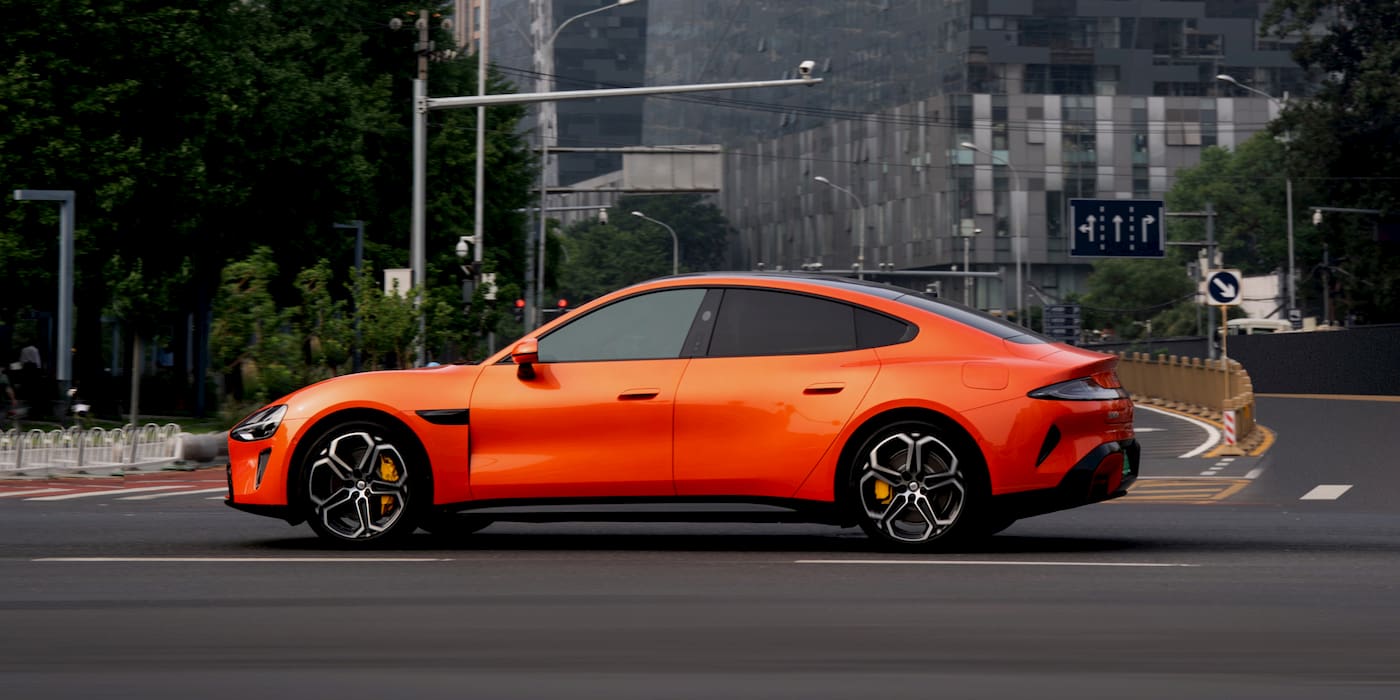
After announcing its electric vehicle business lost over $5 billion in 2024, Ford could face even more headwinds this year. Despite the threat of new tariffs and fewer government incentives, CEO Jim Farley stressed Ford is still “really confident” in its EV strategy. Farley said that Chinese EV makers are becoming a major global force, and even with tariffs, Ford needs to beat them “straight up in a street fight.” This is the electric car he was referring to.
Ford reported fourth-quarter earnings on Wednesday, beating Wall Street’s top- and bottom-line estimates. Despite posting $48.2 billion in Q4 revenue, Ford’s model e division reported an EBIT loss of $1.4 billion.
The EV business lost $5.1 billion last year after losing $4.7 billion in 2023. On the company’s earnings call, Farley said new competition led to increased pricing pressure. Ford expects Model e to lose another $5 billion to $5.5 billion this year. In total, the company is forecasting an adjusted EBIT of $7 billion to $8.45 billion in 2025.
Like GM, Ford did not factor in the potential impacts of tariffs or other changes in policy by the Trump administration.
Farley explained on the call that “There’s no question that tariffs at 25% level from Canada and Mexico, if they’re protracted, would have a huge impact on our industry, with billions of dollars of industry profits wiped out and an adverse effect on the US jobs.”
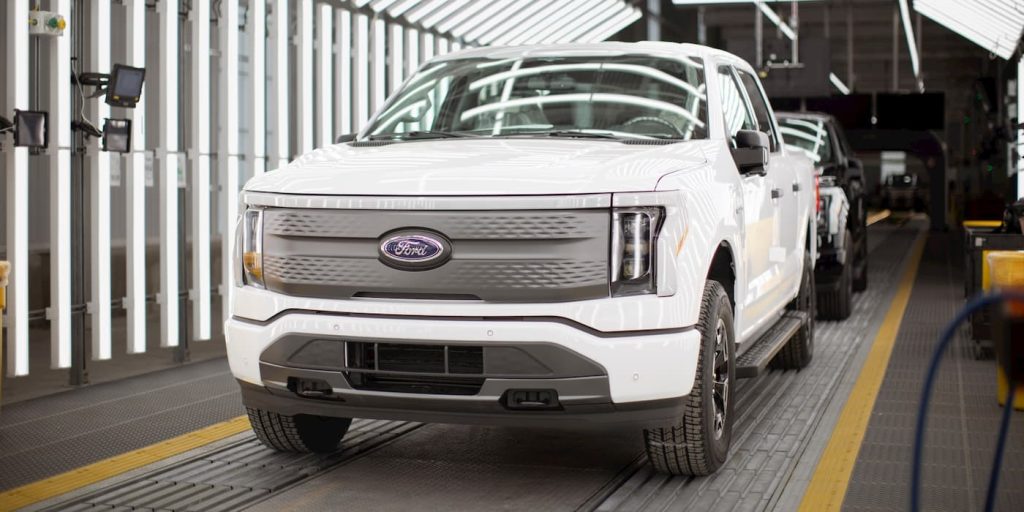
Ford’s CEO said he looks forward to working with government leaders to ensure they are “strengthening, not weakening our nation’s auto industry.”
The tariff situation, growing demand for the latest tech and software, and “the Chinese OEMs growing to become a global reality,” Farley said, “these dynamics will all play out for some time to come.”
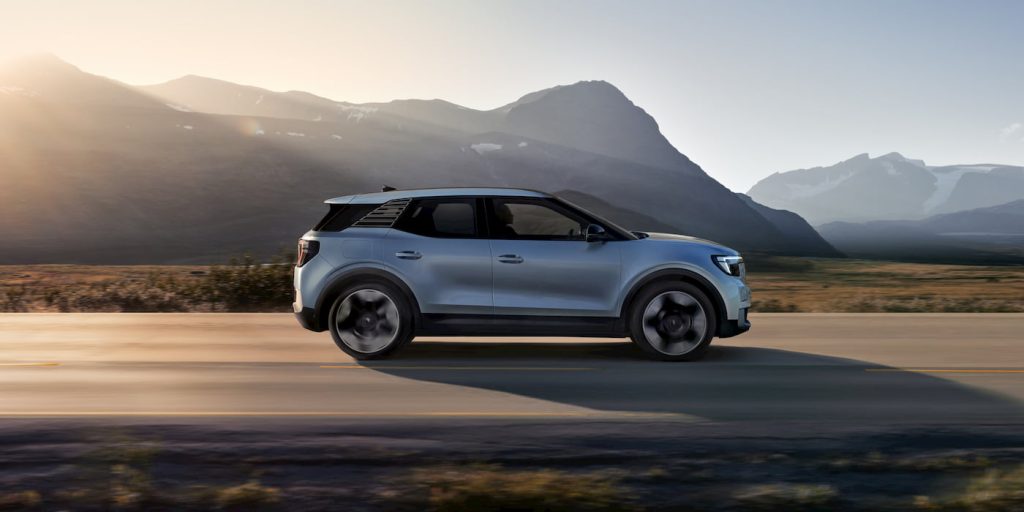
Ford CEO warns Chinese EV makers are a global threat
Ford sells some electric cars outside of the US, including the new electric Puma, Explorer, and Capri models, launched in Europe, so it does have an idea of the changing market dynamics.
After accounting for 8% of car sales in the US last year, Farley said EVs are growing, and “people who buy these vehicles don’t go back to combustion.” He added that it is a “very vibrant market” and a “global capability for Ford.”
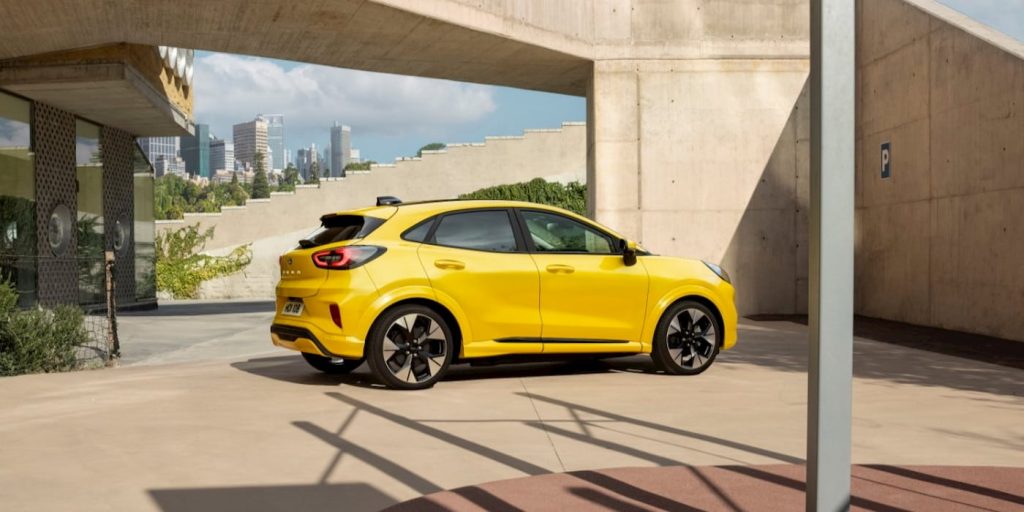
As a global player, it will need to compete with Chinese EVs, which Farley has previously called an “existential threat” to the industry. During the earnings call, Farley touched on the subject, saying they continue to expand and are becoming “a major force in our industry.”
After Morgan Stanley analyst Adam Jonas asked, “Do you think that U.S. tariff policies will be successful in keeping Chinese EVs out of the US market long term,” Farley said the topic “is really pertinent to us.”
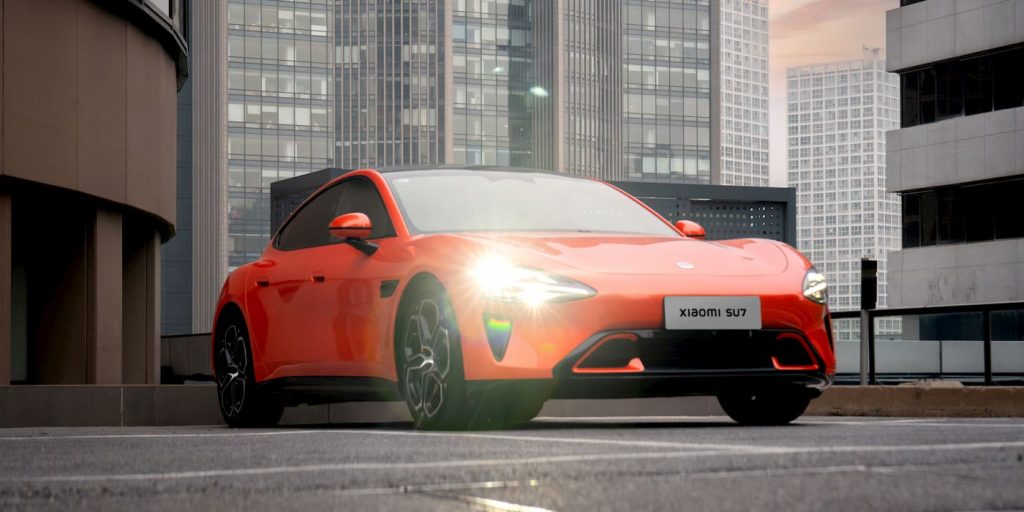
Ford’s CEO added, “The level of subsidies that these companies have in China is very material as well as these are digital vehicles with digital footprints and really deep into people’s digital life.” Farley explained, “On the kind of unfair part or the subsidy part, I think we’ll have to sort that out as a country.”
At the end of the day, “the company has to stand on its own.” Ford will work with government partners to make it a level playing field, but “in the end of the day, it’s management’s responsibility to beat the SU7 straight up in a street fight.”
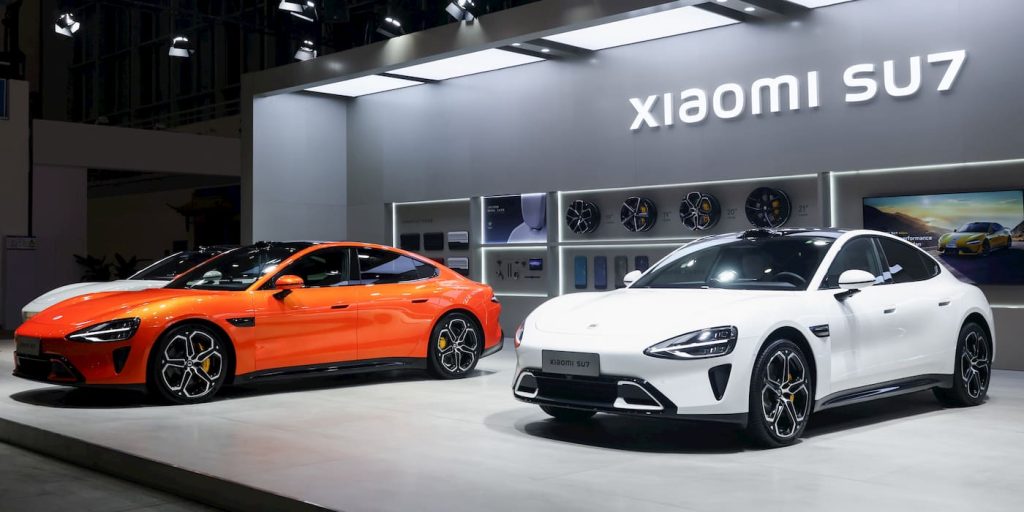
Top comment by Pete Za
I wonder if Farley noticed that the vehicle he stated they need to beat is in a segment they do not participate in, EV or otherwise, anymore. You can't beat a competitor if you don't even build something to compete against it. The SU7 is a sedan. Ford chose to stop selling sedans a few years ago, now they are losing out on sales to a Chinese company that builds vehicles for all segments, including one that does "poorly" in the US. Just because it's not your number one seller doesn't mean there is not a market for it. I understand that it's expensive to design and market a vehicle, but I also know that not everyone wants a SUV-shaped vehicle. As a company that wants more money, they need to find the balance necessary to meet the wants and needs of more people if they want to gain more customers away from their competitors.
The SU7 is Xiaomi’s first self-developed electric car. After shipping one to the US and driving it for a few months, Farley called it “fantastic” and didn’t want to give it up.
After launching the SU7 last April, Xiaomi revealed it had already delivered over 135,000 models in 2024. The SU7 starts at around $30,000 (215,900 yuan).
Ford is betting on its low-cost platform, which is being developed by a team of former Tesla, Rivian, Lucid, and Apple engineers, to help it compete.
The first models, due out in 2027, are expected to be a smaller electric pickup and SUV, starting at about $30,000.
FTC: We use income earning auto affiliate links. More.



Comments